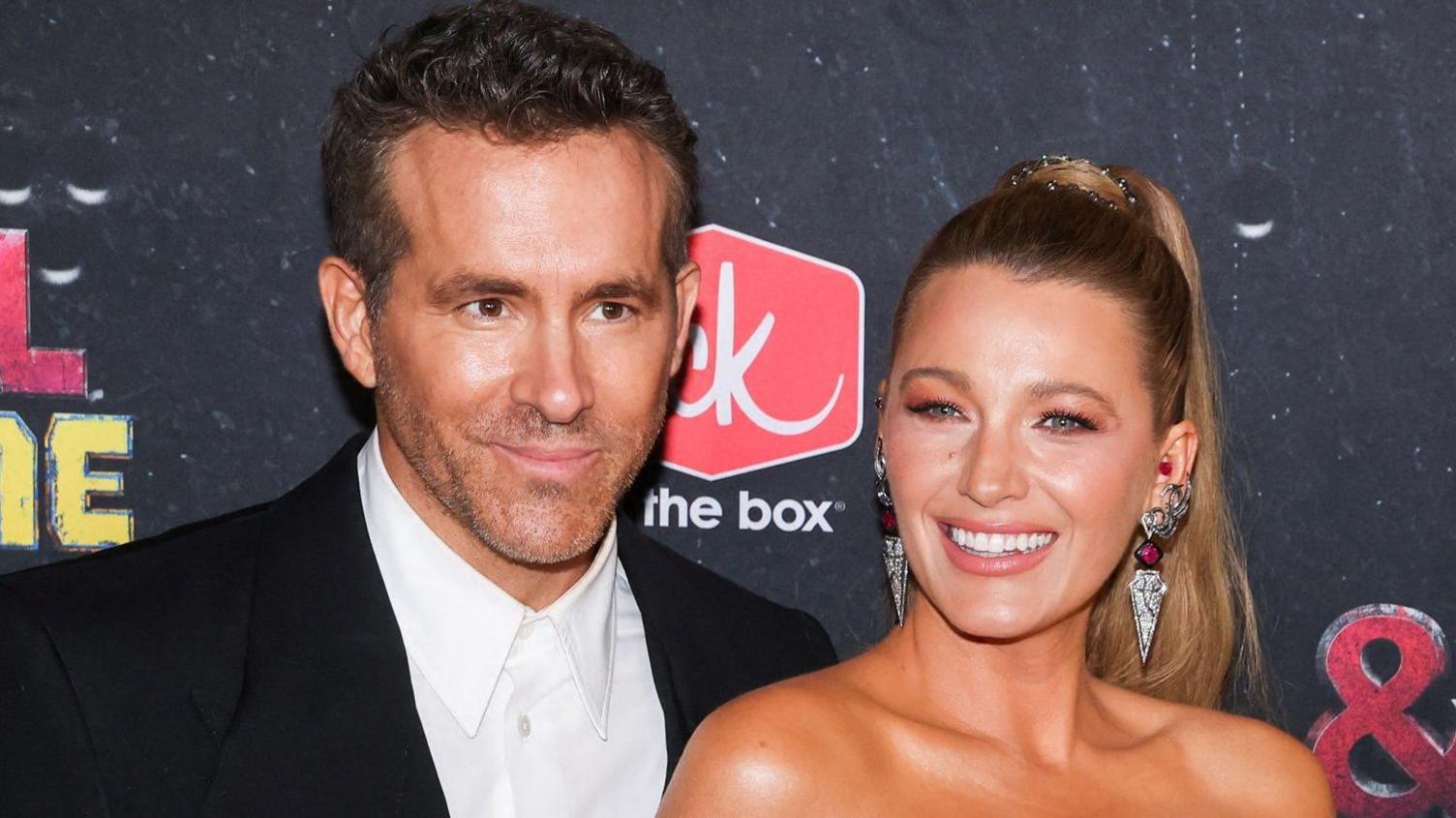Justin Baldoni case against Blake Lively closed by judge

Blake Lively and Justin Baldoni have been at loggerheads since starring together in It Ends With Us
- Published
Justin Baldoni's $400m (£295m) lawsuit against his former co-star Blake Lively has been formally ended by a judge.
The pair, who starred in the 2024 film It Ends with Us, have been locked in a bitter legal battle since Lively sued Baldoni last December accusing him of sexual harassment and waging a smear campaign against her.
In response, he filed a lawsuit against her as well as her husband Ryan Reynolds, their publicist and the New York Times, claiming civil extortion, defamation and invasion of privacy.
Baldoni's case was dismissed in June, but he had a chance to file an amended complaint. However, Judge Lewis Liman said he had not done so.

Baldoni also named Lively's husband Ryan Reynolds in the lawsuit
The judge said he had contacted all of the parties on 17 October to give them warning that he would enter a final judgement to conclude the case.
Only Lively responded, asking for the final judgement to be declared, but for her request for legal fees to remain active. The judge agreed.
Her original lawsuit against Baldoni is also ongoing.
After Baldoni's case was dismissed in June, the actress's lawyers called it "a total victory and a complete vindication".
At the time, Baldoni's lawyer said, external Lively's "predictable declaration of victory is false", and that "with the facts on our side, we march forward".
He added: "While the court dismissed the defamation related claims, the court has invited us to amend four out of the seven claims against Ms Lively, which will showcase additional evidence and refined allegations."
However, those amended claims were not filed, according to the latest ruling. Baldoni and Wayfarer have not commented.

Justin Baldoni directed and starred in It Ends With Us, based on the Colleen Hoover novel
In June, Judge Liman explained that Baldoni's lawsuit centred on two claims: that Lively "stole the film" from him and his production company Wayfarer by threatening not to promote it, and that she and others promoted a false narrative that Baldoni sexually assaulted her and launched a smear campaign against her.
But Baldoni and his production company "have not adequately alleged that Lively's threats were wrongful extortion rather than legally permissible hard bargaining or renegotiation of working conditions", Judge Liman wrote at that time.
Additionally, the judge wrote, Baldoni and his company did not prove defamation because the "Wayfarer Parties have not alleged that Lively is responsible for any statements other than the statements" in her lawsuit, which are privileged.
The judge also determined that evidence did not show that the New York Times "acted with actual malice" in publishing their story, dismissing that $250m suit as well.
"The alleged facts indicate that the Times reviewed the available evidence and reported, perhaps in a dramatised manner, what it believed to have happened," he wrote. "The Times had no obvious motive to favour Lively's version of events."
Related topics
- Published3 June

- Published12 September
